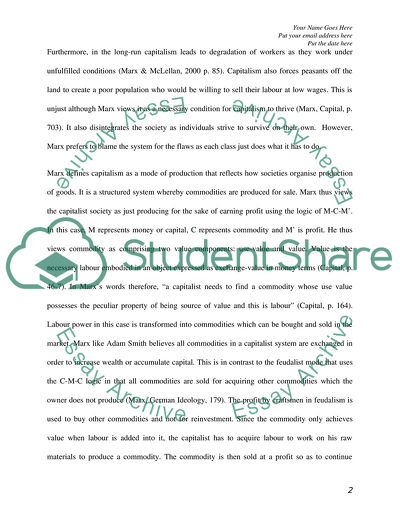Cite this document
(What, for Karl Marx, Is Wrong with Capitalism Coursework Example | Topics and Well Written Essays - 1750 words, n.d.)
What, for Karl Marx, Is Wrong with Capitalism Coursework Example | Topics and Well Written Essays - 1750 words. https://studentshare.org/philosophy/1819657-social-classical-theory-final-exam-paper-what-for-karl-marx-is-wrong-with-capitalism
What, for Karl Marx, Is Wrong with Capitalism Coursework Example | Topics and Well Written Essays - 1750 words. https://studentshare.org/philosophy/1819657-social-classical-theory-final-exam-paper-what-for-karl-marx-is-wrong-with-capitalism
(What, for Karl Marx, Is Wrong With Capitalism Coursework Example | Topics and Well Written Essays - 1750 Words)
What, for Karl Marx, Is Wrong With Capitalism Coursework Example | Topics and Well Written Essays - 1750 Words. https://studentshare.org/philosophy/1819657-social-classical-theory-final-exam-paper-what-for-karl-marx-is-wrong-with-capitalism.
What, for Karl Marx, Is Wrong With Capitalism Coursework Example | Topics and Well Written Essays - 1750 Words. https://studentshare.org/philosophy/1819657-social-classical-theory-final-exam-paper-what-for-karl-marx-is-wrong-with-capitalism.
“What, for Karl Marx, Is Wrong With Capitalism Coursework Example | Topics and Well Written Essays - 1750 Words”. https://studentshare.org/philosophy/1819657-social-classical-theory-final-exam-paper-what-for-karl-marx-is-wrong-with-capitalism.


